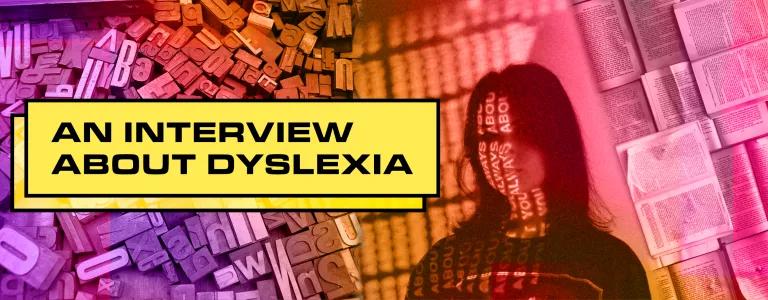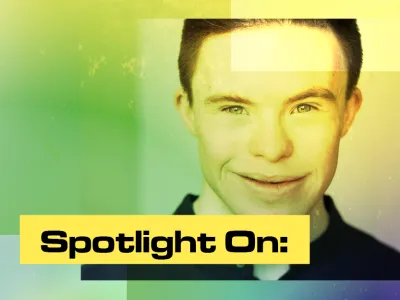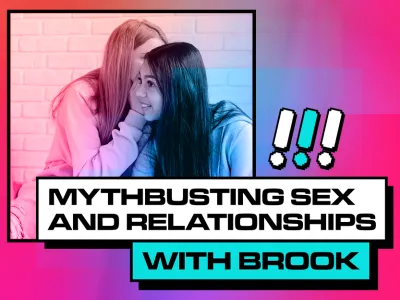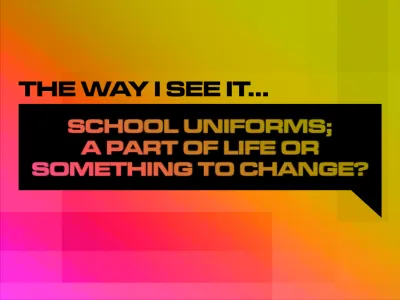
An Interview About Dyslexia
Written by Writers’ Club member Ryan, who interviews his friend for Dyslexia Awareness Week…
Dyslexia is a genetic difference in an individual’s ability to learn and process information. As a result, dyslexic individuals have differing abilities, with strengths in creative, problem-solving and communication skills and challenges with phonological awareness (the ability to recognise and manipulate the spoken parts of sentences and words), verbal memory (this could be things like remembering vocabulary definitions or key details in a story), and verbal processing speed (how long it takes you to recall information in response to visuals).
This week is Dyslexia Awareness Week; a time to spread awareness and show the importance of making people more educated on what dyslexia is. This year's theme is ‘Breaking through Barriers’, which means reflecting on the barriers that those living with dyslexia often face and focusing on how individuals and the education system can break through these obstacles.
Dyslexia was first discovered by Adolph Kussmaul, a German professor of medicine. He keyed the term as ‘word blindness’. At the time, there was some extreme bias against people who had learning difficulties, as they weren’t well-understood. Thankfully, since then, well-examined and funded research has been put in to help everyone properly understand dyslexia.
Some may believe that dyslexia is a limitation and a barrier to success, however, this couldn’t be further from the truth. Orlando Bloom, famous for his iconic role in Pirates of the Caribbean, discovered he was dyslexic at school and went on to pursue a very successful career in acting. Albert Einstein, world-famous and a highly influential physicist, had dyslexia during a time where it wasn’t well-known. Another great role model is Sally Gardner, an English writer and illustrator who won a Carnegie Medal for Maggot Moon. There are so many more incredible people who have broken barriers and challenged stereotypes about dyslexia, you can read more about them here.

I don’t have dyslexia myself, but I am extremely lucky to be able to interview my friend who has dyslexia and ask her some questions about her own life and her thoughts. Here’s what she had to say….
Who are you and how would you describe yourself in three words?
Hi, I’m Richlove. If I were to describe myself in three words it would be unique, extroverted and strong-headed.
When did you find out you had dyslexia and how did it make you feel?
I found out that I had dyslexia when I was 16, two days before my birthday. I realised I couldn’t read or understand some of the words properly. My teacher suggested that I may be dyslexic and had thought so for many years. This made me feel a little sad and worried.
Do you feel like you have enough support at your school?
I feel like there isn't enough support given and the only support given during exams is ‘extra time’ which sometimes isn’t enough for me. I would find it more helpful if we could have someone who speaks to us, maybe even reading out the questions.
How do you live with dyslexia and what were some assumptions people have made?
Living with dyslexia is not easy, as people tend to judge me much more and often treat me like I’m dumb. When I first started sixth form, people would always ask why couldn’t I do ‘basic things’? why couldn’t I see the board properly? And why was I struggling so much in English and Maths? This sometimes made me feel dumb, which often made go through episodes of depression. However, thanks to great friends and understanding myself, I learnt to see that I am smart and I know what I’m doing, but it is just that I have a learning difficulty and have the power to be the best me.
Do you have any advice for people who have dyslexia?
Be yourself and don’t let anyone look down on you. Just remember you are a human being and you learn at your own time. You are important and you matter!

Do you have any final comments or surprising facts about dyslexia that other people may not know?
Yes! I feel like people with dyslexia need more support, for me personally it affects how I talk and sometimes makes me forget things. It would help if teachers could give us context and even read things out loud. It helps to give the support and motivation we need.
So there you have it! Hopefully you know a little more about dyslexia now, and that no matter who you are, you can be and make a change in someone’s life.




